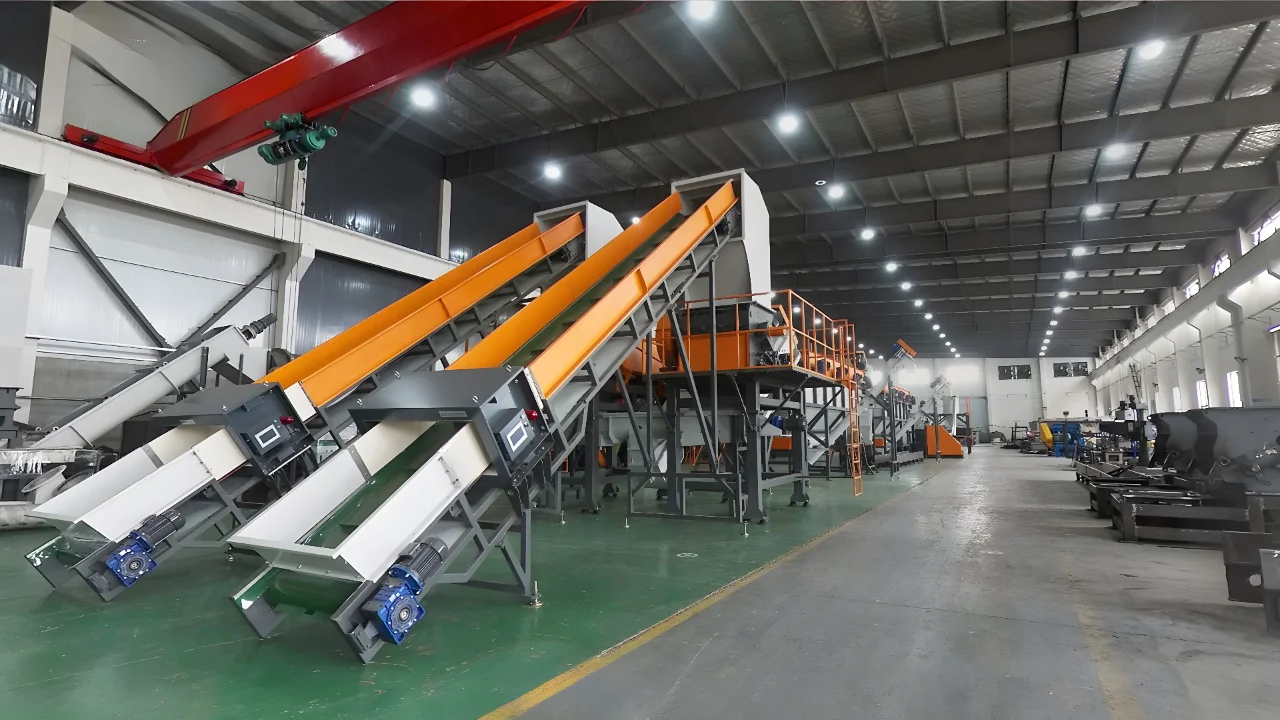L’avènement du plastique a indéniablement facilité notre quotidien, mais ses répercussions environnementales sont de plus en plus préoccupantes. Si les efforts de recyclage traditionnels ont progressé, le recyclage de certains plastiques reste un défi en raison de la contamination par les résidus alimentaires, les étiquettes et les matériaux mélangés. Ces contaminants rendent souvent les plastiques impropres aux méthodes de recyclage conventionnelles. Cependant, la tendance est en train de changer avec l’introduction de systèmes de lavage de recyclage du plastique avancés. Ces solutions innovantes redéfinissent le paysage du recyclage en transformant les plastiques auparavant non recyclables en produits de valeur.
Le défi du recyclage : le rôle de la contamination
Imaginez un tapis roulant inondé de déchets plastiques, notamment des pots de yaourt, des emballages en plastique et des bouteilles de produits chimiques. Ces articles peuvent être réutilisés, mais sont souvent contaminés par des contaminants persistants tels que des résidus alimentaires et des adhésifs. Les systèmes de nettoyage traditionnels ne parviennent souvent pas à éliminer complètement ces polluants, ce qui entraîne la mise en décharge de matériaux. Ce gaspillage nous prive non seulement de ressources précieuses, mais aggrave également la pression sur l’environnement.
La solution : des systèmes de lavage sophistiqués
L'émergence de systèmes de lavage de recyclage de plastique avancés marque une avancée significative. Ces systèmes, dotés d'une technologie de pointe, sont capables de surmonter la contamination. Ils présentent les caractéristiques suivantes :
- Lavage en plusieurs étapes:Conscients de l'inefficacité d'une stratégie unique, ces systèmes adoptent une approche globale. En utilisant de l'eau chaude, des détergents et un lavage par friction, ils assurent l'élimination des saletés les plus tenaces.
- Lavage par friction:Cette méthode fonctionne de manière similaire à un lavage de voiture avancé, mais est conçue pour les plastiques, en utilisant des éléments rotatifs pour éliminer les adhésifs et les résidus persistants.
- Séparation par densité:Reconnaissant la diversité des matières plastiques, ces systèmes utilisent la séparation par densité pour trier et traiter les plastiques en fonction de leurs besoins spécifiques, permettant un nettoyage plus précis et plus efficace.
L'impact : ouvrir la voie à un avenir plus vert
Les avantages de ces systèmes de lavage avancés vont bien au-delà de la simple lutte contre la contamination. Ils contribuent à transformer l'industrie du recyclage du plastique en :
- Amélioration de la qualité des matériaux:L’élimination des impuretés permet la production de plastiques recyclés plus propres et de haute qualité, élargissant ainsi leur champ d’application.
- Augmenter les taux de recyclage:Ces systèmes ont le potentiel d’augmenter considérablement les taux de recyclage en traitant des matériaux auparavant considérés comme non recyclables, réduisant ainsi les déchets mis en décharge.
- Diminution de la dépendance au plastique vierge:L’amélioration de la qualité des matériaux recyclés permet leur réintégration dans les cycles de production, réduisant ainsi le besoin de nouvelle production de plastique et réduisant l’impact environnemental de l’industrie.
Regard vers l’avenir : l’avenir du recyclage du plastique
Alors que la lutte contre la pollution plastique se poursuit, les systèmes de lavage avancés brillent comme des lueurs d’espoir. En s’attaquant efficacement à la contamination, ils posent les bases d’une économie du plastique plus durable et circulaire. L’adoption de ces technologies par les installations de recyclage signifie un pas vers un avenir où les déchets plastiques ne seront pas considérés comme un fardeau mais comme une ressource.
Un appel à l’action
Pour les installations de recyclage ou de traitement qui cherchent à surmonter les défis de contamination et à révolutionner leurs opérations, l'exploration des dernières technologies de lavage du plastique est une étape vers un avenir plus durable. Machines de recyclage Rumtoo ,peut vous donner un aperçu de la manière dont ces technologies révolutionnaires peuvent améliorer vos opérations et contribuer à un avenir plus respectueux de l'environnement.
Renseignez-vous maintenant
[contact-form-7 id=”c9499fe” title=”Formulaire de contact 2″]



